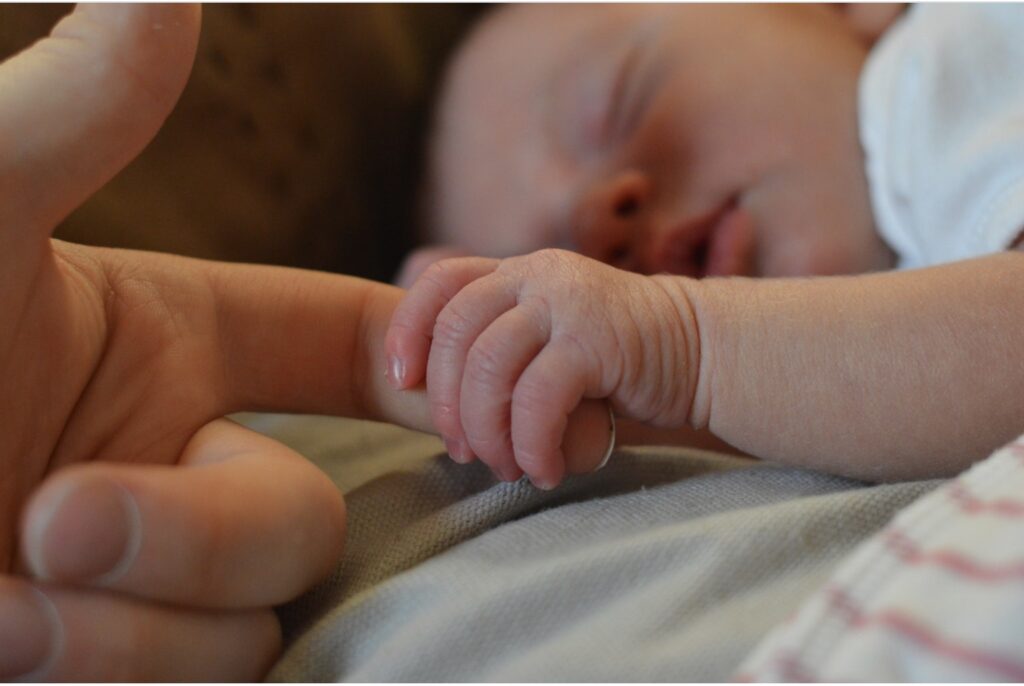
United Nations Human Rights experts have been seeking to ban solitary confinement as a jail sentence. Isolation or lockdown is causing severe mental pain and suffering, it amounts to torture, is cruel, inhuman and a degrading treatment that causes long term psychological damage.
Isolation is one of the most devastating things you can do to a human being. Lockdowns are causing massive psychological trauma to the entire world whereas Coronavirus is causing damage only to the weak and nature is programmed for ‘Survival of the Fittest’
Touch is your first form of human communication, it’s the first language you learn. It is your first sense to develop and the last to fade. Human body has 5 million touch receptors and 3,000 in each fingertip. Touch connects you in happiness and comforts you in times of fear. The touch of a loved one fills your heart with joy.
You need touch from people you love, almost as much as you need air to breathe. You understand the importance of touch only when it’s gone, it gives a sense of safety, security & comfort. Your skin is a rich source of information about what you’re thinking and feeling
You are hardwired to seek touch even before you are born. If you touch the palm of a newborn baby, then you’ve seen the earliest instinctual responses in humans. The instinct that makes a baby grab your finger and squeeze it tight is called Palmer grasp reflex. Human fetuses clutch their umbilical cord, place their hand in their mouth, or suck their thumb and twin fetuses hold hands.

Palmer Grasp Reflex
Medical research has proved that touch therapy helped premature infants grow faster, young mothers cope better and aged people live richer lives. Researchers discovered that a doctor’s comforting touch gave patients an impression that a visit lasted twice as long. Teenagers whose mothers hugged them experienced less stress. It reduces depression in pregnant women making them less likely to deliver prematurely.
Professor Tiffany Field at Touch Institute, University of Miami, studied emotional and physiological benefits of touch. She said we have become a “touch-deprived” world. Touch has become taboo. Institution’s that fear sexual harassment suits have made policies banning touch, they discourage people from communicating in the most basic ways.
Many nations now ban school teachers from comforting crying children; psychiatric boards ban therapists from even shaking hands of those they counsel; and hospitals and medical schools fail to promote touch between doctors and nurses and their patients. Certain kinds of touch are exploitative or abusive but our paranoia has resulted in eliminating all ‘touch’ from human society.
Students can greatly benefit from an authority figure-professor/teacher comforting them with a hug or a pat on the back. Something as simple as a shoulder squeeze can have a profound impact on a distraught student.
Professor Tiffany wrote a book called Touch where she spoke about the importance of touch for optimum growth & development of children and mental health & well being of people. She found that premature babies who were massaged gained 47 percent more weight than those not massaged. Infants need touch stimulation as much as they need nourishment.
Touch reduces heart rate and blood pressure. Touch stimulates the release of endorphins, the body’s natural pain killer. In 1930 Bellevue Hospital in New York instituted a program where nurses and staff touched premature infants; mortality rate dropped from 30 percent to 10 percent. By 1950 the pharmaceutical industry replaced everything human with medicine.
Oxytocin, the bonding hormone that was naturally released by comforting physical touch was replaced by pills that chemically induced the same feeling. Cuddling relieves anxiety, depression and strengthens your immune system.
Ebers Papyrus the most important medical papyrus of ancient Egypt documented healing by touch in 1553 BC. In ancient Greece, Ascelpius-son of Apollo healed people by placing his hands on them. Around 400BC Hippocrates’s, the great Greek physician & father of medicine used his hands to repair the body’s organs. Michelangelo said: “To touch can be to give life.” European monarchies used “royal touch” to heal the sick.
Aggressive, violent, antisocial behaviors amongst children and teens are linked to touch deprivation at an early age. When a living being touches another living being, information travels through peripheral nerves to the brain via posterior pituitary, a small organ in the center of the brain and a hormone called oxytocin is released.
If you don’t get human Touch for a longer period of time, at an emotional level you experience skin hunger or touch hunger. Your skin is the largest sense organ of your body and anything that affects your skin affects your mental health and well being deeply. This hunger is what makes you crave a hug.
Touch is a language, it’s the richest emotional expression. Oxytocin that is released during touch; reduces pain, stress, anxiety and eases depression. Touch is a basic somatic necessity for humans and animals. The maximum influence on your somatic experience is touch, next is eye contact because we have a visual brain.
When you don’t experience human touch for prolonged periods, oxytocin in your body drops, this can cause depression and make you seek comfort in over eating, drugs, alcohol etc. Without human touch, you will feel isolated, disconnected and alone.
If you live alone you can do a few things which can help mimic ‘human touch’. Take a warm bath and rub yourself with a big fluffy towel then wrap urself in a soft blanket and curl up in bed. This can increase oxytocin levels marginally.
Babies need a lot more touch for healthy development. It is vital during a persons youngest years. Studies have shown that neglected children grow up to be adults with emotional/behavioural problems and weaker immune systems. So cuddle your newborn as much as possible because people need human touch from day one.
Compassion is the foundation of any strong relationship and nothing conveys compassion and empathy more than Touch. It helps us build trust and a sense of safety, security and bonding which is necessary for any relationship to thrive.

NBA teams whose players touch each other more by giving chest bumps and high fives win more games. A physiotherapy session before an athletic event makes an athlete more flexible, enhances his speed and power and makes him less prone to injury
Touch fosters a sense of belonging and trust. Humans are creatures of habit and comfort. You tend to gravitate toward situations and people who make you feel content and secure. You want to work with people you feel a connection with. That is the reason a firm handshake is critical to forging a strong bond. We are all emotional beings, at a subconscious level we trust the person whose touch makes us feel secure, reassured and confident.
People who hug have lower heart rates, blood pressure and a stronger immune system. A hug exerts pressure on your sternum and that creates a positive emotional charge and activates the body’s vagus nerve and Solar Plexus Chakra. It stimulates the thymus gland, which regulates and balances the body’s production of white blood cells, which keeps you healthy, stress/disease free. You are in a relaxed state and your cortisol or stress levels go down rapidly.
Discouraging touch is a fairly recent phenomenon. We have evolved into a Touch phobic society. What’s really hard about this Lockdown is the absence of touch. We need it at a cellular level and crave it at a subconscious level.
When you read this – touch him, touch her, touch people, touch the person you love, it can even be your mother or your brother. Massage your mothers feet or give your father a shoulder rub. When you go out of your house wear gloves and touch people – a simple pat on the back for your watchman, a warm thank you handshake to a Policeman. TOUCH